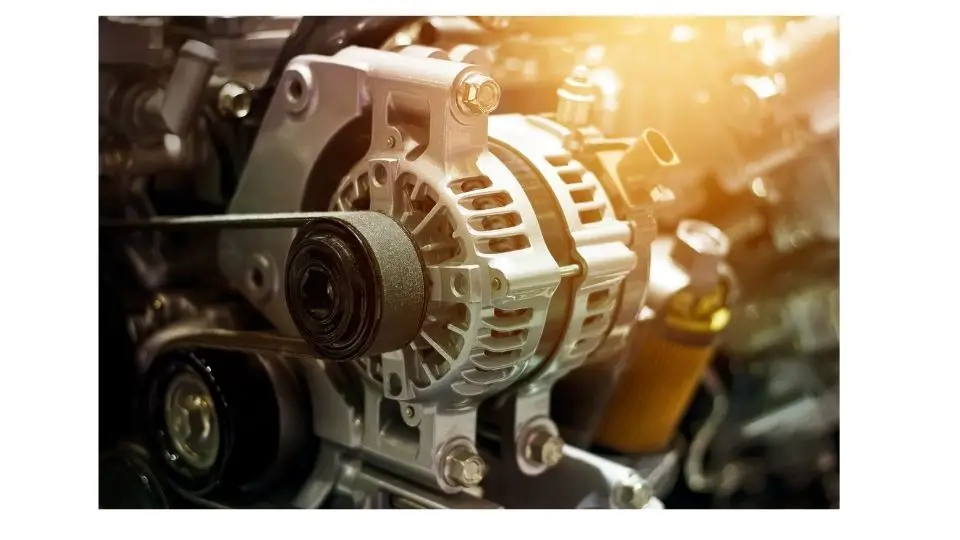Chevrolet 5.3L V8 is the most reliable due to its longevity and trustworthiness. But that does not mean the engine is invincible to problems. It will experience some issues after a couple of years, depending on the frequency of usage. So, what are the 5.3 liter Chevy common engine problems?
5.3 Liter Chevy Common Engine Problems are gradual coolant loss, intake manifold and gasket failure, misfiring and noise, fuel pressure regulator failure, malfunctioning sensors, and more.
It would be best to keep reading this article to learn how to identify these engine fault causes and symptoms associated with each. You will also learn how to fix and prevent these issues from happening in the future.
Common 5.3 Liter Chevy Engine Issues
Fuel Pressure Regulator Failures
The failure of the fuel pressure regulator is the leading issue in the 5.3 liters Chevy engines. The problem makes it challenging to start the engine and inhibits the vehicle from running at all.
Signs of fuel pressure regulator failures are rough idling, stuttering, improper acceleration, and premature spark plugs fault. The problem occurs due to engine aging and is inevitable. Fixing a faulty fuel pressure regular is easy and inexpensive. I recommend seeking assistance from a professional mechanic to replace the faulty one.
Gaskets and Intake Manifold Failures
5.3 liters Chevy engines tend to cover longer miles causing depreciation of vital components in the long run. Intake manifold and gasket are some of these wear items. Intake manifolds are made from plastics vulnerable to cracking over time.
Gaskets experiences wear and tear after the engine covers high mileage than expected. Signs of failed gaskets or faulty intake manifolds are noticeable power loss, stuttering, and rough idling. Consider inspecting these components and get a mechanic to fix them.
Gradual Coolant Loss
Most cylinder heads of Chevy engine 5.3 liters are vulnerable to cracking over time. The Chevrolet cylinder heads come from an outsourced company. The Castech heads do not undergo vigorous inspection before being released to the market. It could be the possible reason behind cracking more often.
Detecting a cracked cylinder head can be a little bit challenging. If the vehicle is experiencing coolant loss, consider a pre-purchase inspection mechanic to remove the valve covers. Gradual coolant loss reduces the vehicle power and torque. The low car performance makes it challenging to cruise any terrain or road condition.
Engine Sludge
The internal engine sludge is another prominent issue in all Chevrolet models. It occurs when the oil mixes with carbon dust and air. The sludge increase makes the engine suffer and malfunction.
Consider monitoring the engine oil and maintain high-quality oil management to prevent engine sludge. The best option is to schedule regular maintenance and oil check to improve the engine longevity. These schedule maintenance will help to prevent regular engine failures.
Malfunctioning Sensors
A 5.3-liter engine is more susceptible to faulty sensors. The problem occurs due to low-quality oil and excessive oil consumption. To improve the performance of the sensors, consider high-quality oil and quality sensors.
These two factors will help to inhibit issues related to malfunctioning sensors. Excessive Oil Consumption A 5.3-liter engine has a reputation for consuming a lot of oil.
The issue occurs due to frictional loss that causes an increase in internal sludge. The frequent oil refill ends up draining the account of the car owner. Besides that, oil spillages cause environmental pollution. Consider replacement of piston rings and gaskets.
Misfiring and Noise Problem
A 5.3-liter engine is more vulnerable to misfiring and noise problems. Engine misfires occur due to the Active Fuel Management component.
The AFM feature is associate with many engine issues despite being meant for power and performance improvement.
Excess Carbon Buildup A Chevrolet with a 5.3-liter engine has a PCV valve, AFM, and valve covers. The PCV valve releases too much oil spray, and the AFM pressure relief valve limits the entry of oxygen.
The issue encourages the buildup of carbon on the piston rings and in the combustion chamber. It later results in air pollution to make the vehicle not meet emission regulations.
Final Thoughts
The 5.3 liter Chevy engine has durable small blocks. The engine design is the reason why it is more reliable and long-lasting. It can run up to 220,000 miles with minimal issues.
Despite the high reliability, the Chevy 5.3-liter engines do experience some fundamental issues. I recommend seeking a pre-purchase inspection mechanic for assistance.
The most common Chevrolet 5.3L engine problems are faulty spark plug, excessive oil consumption, failed sensors, faulty gaskets, and internal engine sludge.
Sources:
https://gmauthority.com/blog/gm-engines/

Tomas is a retired Chevy Auto Technician that brings decades of hands-on experience and expertise to the table. He’s also a father to two incredible daughters. He enjoys using his knowledge and experience to help you solve and find reliable information on Chevrolet vehicles. Whether it’s troubleshooting engine problems or providing tips for maintenance, Thomas is committed to helping Chevy owners keep their vehicles running smoothly and safely.



